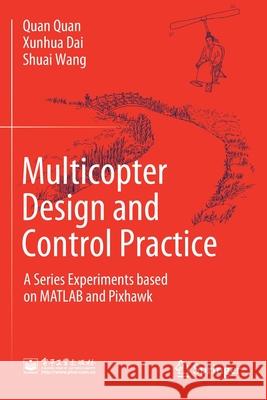Multicopter Design and Control Practice: A Series Experiments Based on MATLAB and Pixhawk » książka
topmenu
Multicopter Design and Control Practice: A Series Experiments Based on MATLAB and Pixhawk
ISBN-13: 9789811531408 / Angielski / Miękka / 2021 / 407 str.
Multicopter Design and Control Practice: A Series Experiments Based on MATLAB and Pixhawk
ISBN-13: 9789811531408 / Angielski / Miękka / 2021 / 407 str.
cena 465,09
(netto: 442,94 VAT: 5%)
Najniższa cena z 30 dni: 443,35
(netto: 442,94 VAT: 5%)
Najniższa cena z 30 dni: 443,35
Termin realizacji zamówienia:
ok. 16-18 dni roboczych.
ok. 16-18 dni roboczych.
Darmowa dostawa!
Kategorie:
Kategorie BISAC:
Wydawca:
Springer
Język:
Angielski
ISBN-13:
9789811531408
Rok wydania:
2021
Wydanie:
2020
Ilość stron:
407
Waga:
0.59 kg
Wymiary:
23.39 x 15.6 x 2.21
Oprawa:
Miękka
Wolumenów:
01
Dodatkowe informacje:
Wydanie ilustrowane











